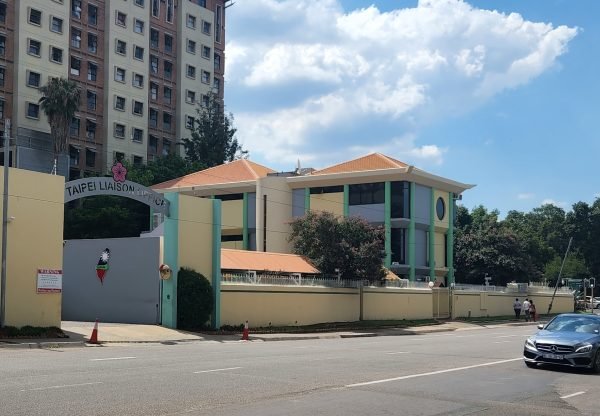The recent decision by South Africa’s newly formed Government of National Unity (GNU) to move the unofficial Taiwanese embassy, known as the “Taipei Liaison Office”, from Pretoria to Johannesburg was prompted by pressure from the Chinese government and the “one China” principle. It reflects the forced imposition of The directive to change the name of the liaison office to the trade office aligns with China’s concerted efforts to isolate and intimidate Taiwan globally and further emphasizes the non-diplomatic nature of the relationship. be.
Ultimately, there was little Taiwan could have done to prevent this outcome. Despite its historical ties to South Africa’s apartheid regime, Taiwan has struggled to maintain influence since the establishment of the African National Congress (ANC)-led black majority government.
For two and a half years after coming to power in 1994, the ANC pursued a flexible approach to the One China policy, formally recognizing both Taiwan and China. Taipei still held considerable bargaining power with the ANC, having financially supported the ANC’s 1994 election campaign and invested heavily in the Reconstruction and Development Program (RDP).
However, the impending handover of Hong Kong to China by Britain in 1997 changed the balance of power, allowing China to threaten countries that recognized Taiwan with restrictions on their presence in Hong Kong. Eventually, in November 1996, Mandela’s government succumbed to this pressure and announced its decision to sever ties with Taiwan in favor of China, in line with the “one China” principle.
Despite the diplomatic shift, South Africa allowed Taiwan to maintain a symbolic presence through a liaison office in Pretoria. Since then, Taiwan’s relationship with South Africa has been a game of hide-and-seek, avoiding confrontation with China and focusing on regional efforts. Although many of these grassroots projects have been effective and achieved significant results, they pale in comparison to China’s large-scale investments. While Taiwan kept a low profile and focused on local efforts, China aggressively courted government officials with large loans and subsidies.
Although this represents a significant setback for Taiwan’s external sovereignty aspirations, it is not the first time an African country has moved Taiwan’s liaison office away from the administrative capital. In 2017, Nigeria asked Taiwan to move its office from Abuja to Lagos. Taiwan complied.
Over the past two decades, a number of African countries have severed formal ties with Taiwan, including Burkina Faso, Chad, Gambia, Liberia, Malawi, Senegal, and Sao Tome and Principe. Currently, Eswatini, a small monarchy near South Africa, is Taiwan’s last remaining diplomatic ally in Africa.
Taiwan operates two offices in South Africa. one in Pretoria and one in Cape Town with a trading office. Taiwan’s Ministry of Foreign Affairs has staged a protest against Mr. Potemkin and rejected the decision to move the country from the capital, but the decision appears to be irreversible. Taiwan cited a 1997 agreement on the location of mutual representation offices established after formal diplomatic ties were severed. Despite this, South Africa insists that Taiwan relocate within six months.
Taiwan has threatened South Africa with reciprocal measures, including telling South Africa to move its offices from Taipei, imposing strict visa requirements on South Africans, and suspending educational exchanges. None of these options seems realistic for Taiwan.
Aside from Taiwan’s Ministry of Foreign Affairs, the only notable outcry came from Tennessee Republican Sen. Marsha Blackburn, who condemned China’s bullying tactics and urged Biden to take action against South Africa for bowing to the Chinese Communist Party. asked the government. However, there has been no response from the US government.
The United States has the option of punitive action against South Africa, especially given that South Africa is the largest beneficiary of the African Growth and Opportunity Act (AGOA), which provides duty-free access to the U.S. market for thousands of items. South Africa has been under US surveillance since last year due to naval exercises with Russia and China. Although the country defended its actions as a matter of strategic autonomy and partnership choices, this rationale is not clear to some U.S. policymakers, especially given the timing around the anniversary of the Russia-Ukraine conflict. never wavered. However, based on past experience with sanctions, withdrawal of AGOA benefits is unlikely to change South Africa’s position.
South Africa’s decision to further marginalize Taiwan’s presence is not surprising. In some ways, this development foreshadows the future of China-South Africa relations under the new coalition government. In May 2024, for the first time in democratic South Africa’s history, the ruling ANC lost its absolute majority and was forced to form an alliance with multiple opposition parties, including the main opposition party, the Democratic Alliance (DA). Historically, the Crown Prosecution Service has criticized South Africa’s close ties with China. The ANC’s move may be an attempt to reassure China that despite significant political changes in South Africa, the core principles of the bilateral relationship remain intact.
The move also highlights the intense geopolitical competition on the African continent and the ongoing, if often subtle, pressure from China to weaken diplomatic support for Taiwan and further isolate the island. There is. The move would further strengthen China’s position and reduce Taiwan’s de facto sovereignty.

